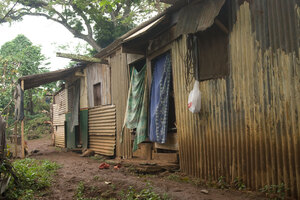Even in the decades before Jimmy Steven’s Nagriamel movement, land has been at the core of ni-Vanuatu politics and society. Many battles have been fought – and far too many lost – over land rights.
Justin Haccius, a legal researcher for the World Bank’s Jastis Blong Evriwan project, has been looking at this issue for some time now. The conflict between kastom and law, he says, is one of the central issues affecting Vanuatu society today. The problem, as he sees it, is simple: “The system of the majority is not the system of the State.”
In a briefing note titled “Coercion to Conversion: Push and Pull Pressures on Custom Land in Vanuatu” Haccius highlights some of the pressures brought to bear on kastom land owners in their efforts to derive value from their land without becoming completely disenfranchised in the process.
[Originally published in the Vanuatu Daily Post’s Weekender Edition.]
Even in the decades before Jimmy Steven’s Nagriamel movement, land has been at the core of ni-Vanuatu politics and society. Many battles have been fought – and far too many lost – over land rights.
Justin Haccius, a legal researcher for the World Bank’s Jastis Blong Evriwan project, has been looking at this issue for some time now. The conflict between kastom and law, he says, is one of the central issues affecting Vanuatu society today. The problem, as he sees it, is simple: “The system of the majority is not the system of the State.”
In a briefing note titled “Coercion to Conversion: Push and Pull Pressures on Custom Land in Vanuatu” Haccius highlights some of the pressures brought to bear on kastom land owners in their efforts to derive value from their land without becoming completely disenfranchised in the process.

